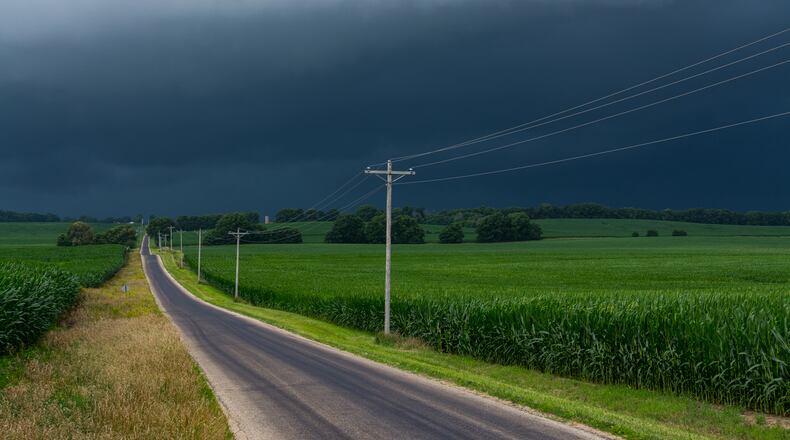According to the National Oceanic and Atmospheric Administration (NOAA) most tornadoes form from supercell thunderstorms. The National Weather Service states that a supercell “contains a deep and persistent rotating updraft called a mesocyclone”, and some supercell thunderstorms can develop into a tornado.
A tornado watch means a tornado could potentially occur near the watch area. If a tornado watch is issued for your area, it is important to be aware of the conditions around you by listening to the radio, watching weather reports, or being aware of changes in the sky.
A tornado watch is the perfect time to prepare for bad weather, and get organized. Tornadoes can happen any time of the year, but they typically occur in the spring and summer, and the NOAA website said about 55 people are killed by tornadoes each year. The tornado season is earlier in the southern region of the United States (March/April) and later in the northern region (May/June).
Remember, tornadoes can only be seen by humans once they have touched down and debris and dirt enter the funnel cloud. That makes it more difficult to foretell a tornado’s path, so being able to move quickly is imperative.
Preparation can mean all the difference if a tornado strikes. Cities and municipalities also stay prepared by testing tornado sirens monthly. Have a tornado survival plan and be ready to act if needed — it could save your life.
Here what you need to do:
Check your emergency kit
Give your emergency bag of supplies a quick once-over, and add any last-minute items you may need. Consider using a backpack to contain all your supplies. You should also have extra food and water, a whistle to signal for help, flashlight, socks and sturdy closed-toe shoes, a small radio, extra batteries, disinfecting wipes, hand sanitizer, tissues, duct tape, garbage bags, tools to turn off utilities, comfort items, and games or activities for children, pain relievers and list of medications, contact information for doctors and pharmacies, personal hygiene items (toothbrush, contact solution, feminine products, deodorant, toilet paper, etc.), bottles, formula, wipes, diapers and any other infant supplies, change of clothes for each person, identification and any important papers (insurance, birth certificates, bank accounts, etc.) and a cell phone/tablet charger.
Prepare for your pets
Ensure you have a first-aid kit and any supplies you need for pets, including chew toys for anxiety and their food and water. Definitely have their state license on their collar in case they get away from you.
Pay attention
Listen to the radio, watch news or weather stations, or keep an eye on official social media accounts for up-to-date weather information and alerts. Listen for sirens that alert folks outside to take shelter.
Hit the road if you have a vulnerable structure
If you live in a mobile home, find nearby shelter. Never stay in a mobile or manufactured home during a tornado, as they are light and particularly vulnerable to high winds. Have an emergency kit ready to go.
Online sources for more information
About the Author
